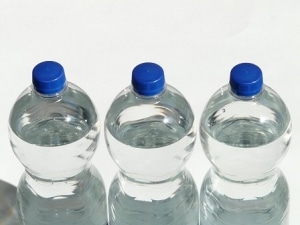 While the amount of water on the planet never changes except for a minimal amount that escapes into space from the atmosphere, our river systems are open and variable and their state is entirely dependent on human management.
While the amount of water on the planet never changes except for a minimal amount that escapes into space from the atmosphere, our river systems are open and variable and their state is entirely dependent on human management.
The problem is that not many individuals realise that the whole planet’s water resources are connected, or just don’t think about it anyway. This means that if you do not look after your water resources in America, it will impact on me in Africa, and vice versa.
A good example of this is what has been happening in the Amazon, where deforestation has been rife. The Amazon rainforest serves not only as a biodiversity sanctuary, but also “produces” water. Deforestation in the Amazon, in other words, will impact not only in the forest itself but will also impact on other areas such as São Paulo, which is currently experiencing a crippling drought.
How Humans Impact Water Security
Being that civilisation originated from the peoples that populated the banks of the Euphrates, the Tigris, the Nile, the Yangtse and the Indus rivers, perhaps it is time to rethink how we treat our rivers and return to the respect that rivers once held when life was simpler and people realised the value of the rivers and the life-giving water that they provided.
In a study conducted in 2010, and published in the journal Nature, it was reported that the state of the world’s rivers due to human activity was so bad that the water security of around 5 billion people, as well as the survival of thousands of aquatic species, was being threatened and that something drastic needed to be done about it to avert catastrophe.
According to Professor Peter McIntyre, one of the lead authors, who began the project as a Smith Fellow at the University of Michigan, what was astounding was that while the authors were aware of the threats to both water security and biodiversity in developing countries, especially in Asia and Africa, some of the highest threat levels posed to wildlife existed in rich countries, in the United States and Europe.
Prof Charles Vörösmarty of the City University of New York, lead author and an expert on global water, said that although the EU has protection in place, the altering of landscapes by Europeans, such as the removal of 90% of wetlands and floodplains, which are crucial parts of river ecosystems, created a hotspot for biodiversity loss.
More than 30 of the 47 largest rivers displayed at least moderate threats to water security, caused by an assortment of human impacts such as pollution and irrigation. Globally, 10,000 to 20,000 aquatic wildlife species are either at risk or actually face extinction because of the human degradation of the rivers. Even in the UK, where the rivers had been getting cleaner over the past decade or so, a mere 5 out of the 6,114 rivers in England and Wales were considered pristine, and 75% would fail the new European quality standards for diverse reasons.
We need to take care of our water resources, be they rivers, dams, wells, aquifers, seawater or whatever, because if we do not we are going to sit with HUGE problems in the very near future. Instead of spending huge amounts of money on trying to fix problems which we as humans have created, we need to act more responsibly and look after our water which after all is our life-source.
Purchase water coolers online and rent water coolers from Living-Water Ltd.





